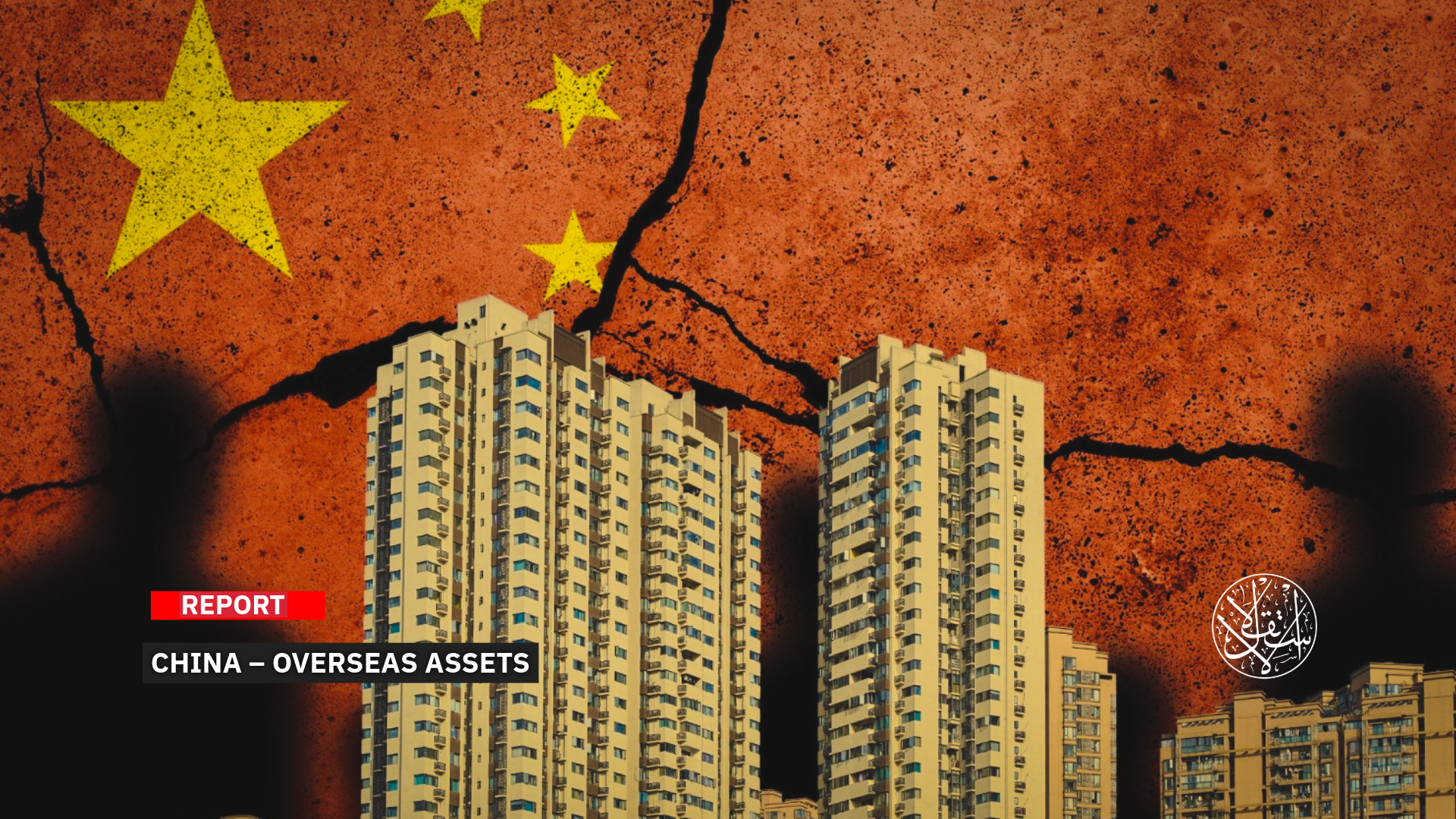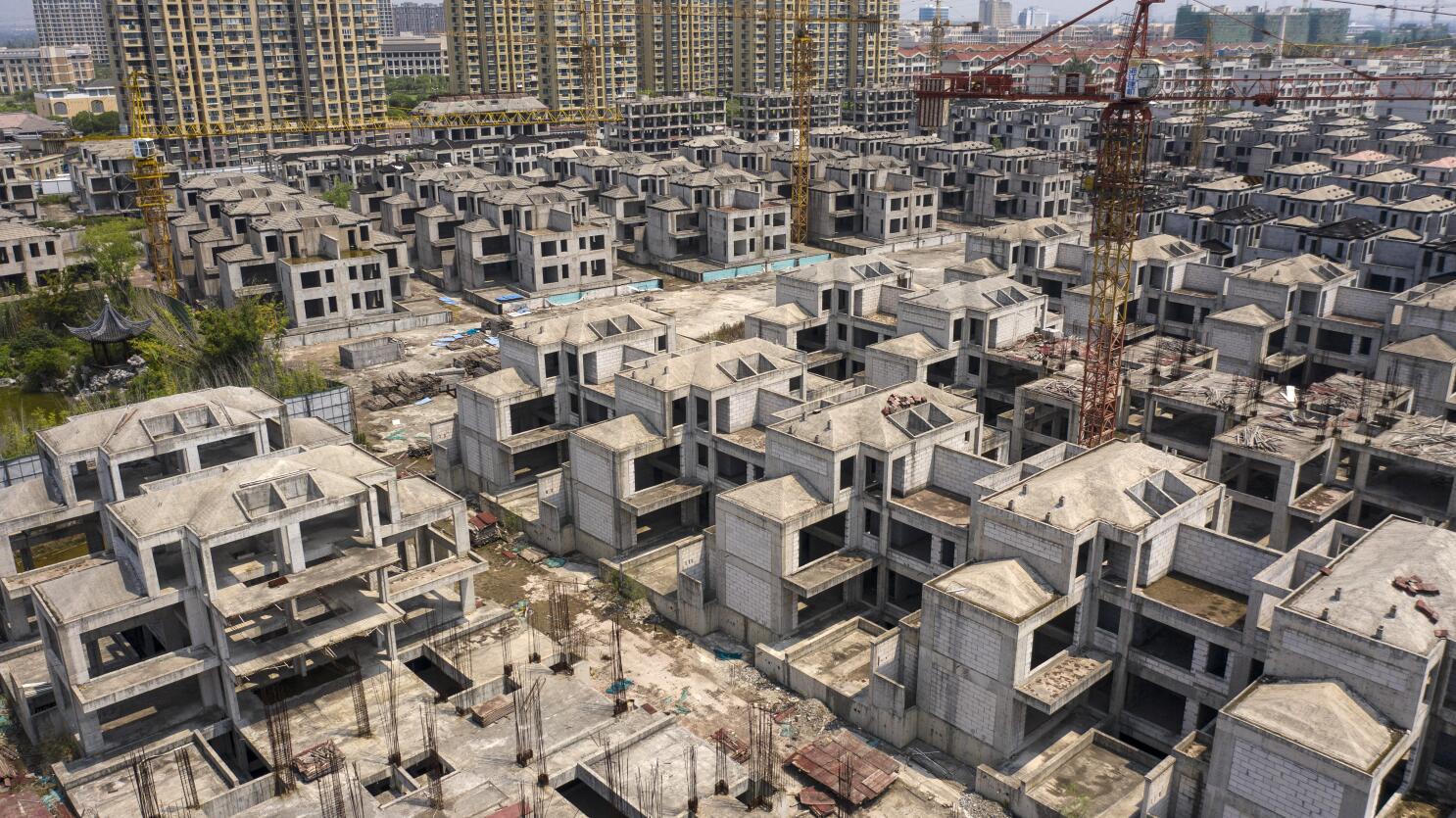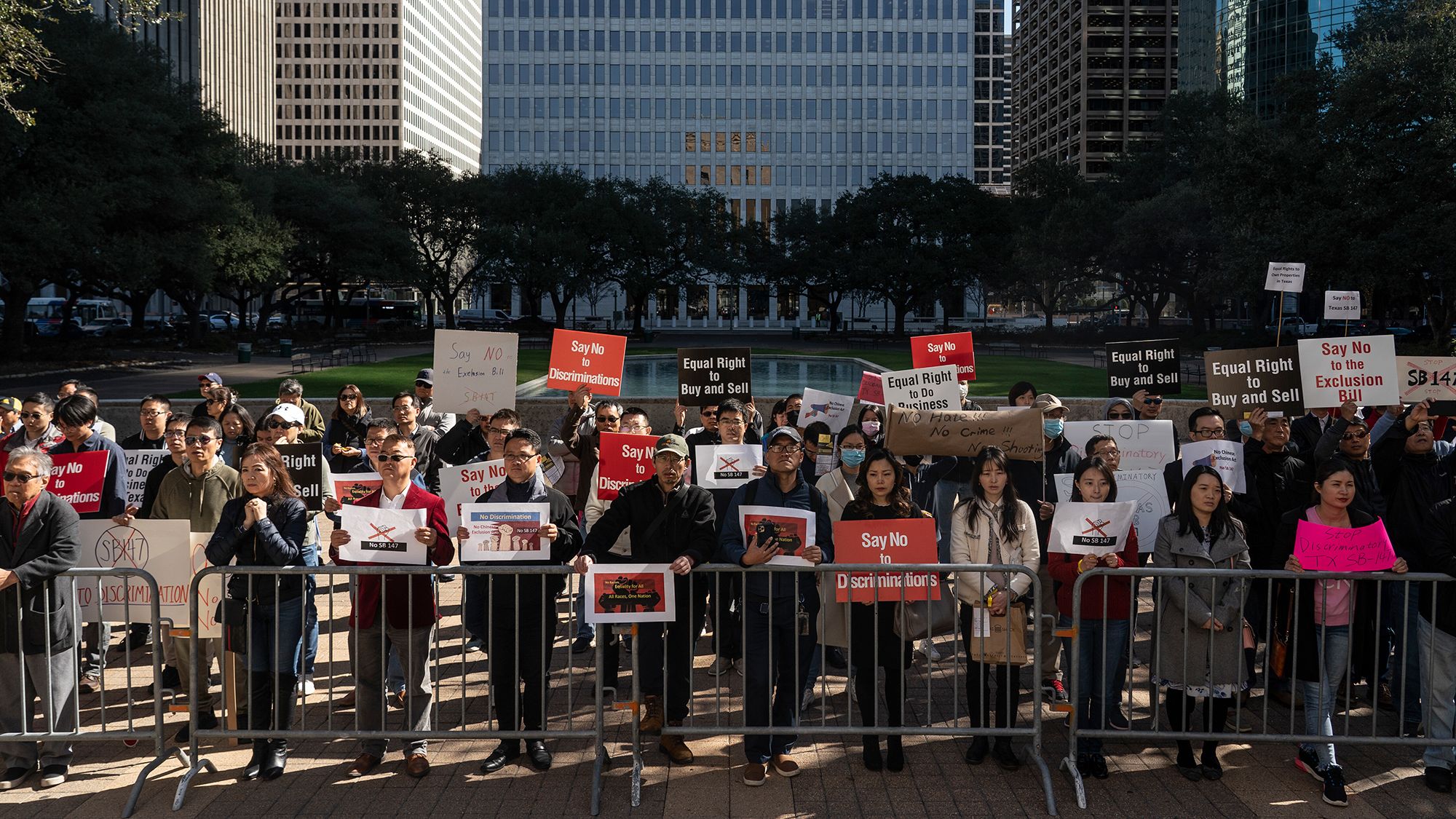Why Are Chinese Citizens Turning to the US Housing Market?

“US intelligence officials have been increasingly warning of China’s influence operations in the U.S.”
The housing sector, once China's largest wealth accumulator, has become its largest destroyer in modern history, costing the Chinese more than $18 trillion in losses in less than four years.
The number of empty housing units in China today is estimated at 80 million, 20 times the number of housing units in New York City.
Figures show that 42% of urban Chinese households own two homes, while 20% own three or more, with real estate traditionally considered the preferred investment way, outperforming stocks and bonds.
According to a new report from the National Association of Realtors (NAR), China now ranks as the largest foreign buyer of US homes, accounting for 15% of all homes purchased by foreign buyers.
The data shows that Chinese buyers are brushing aside concerns over US-China geopolitical tensions and tighter visa policies.
Instead, they are actively seeking overseas assets as a hedge against China’s economic slowdown following years of regulatory crackdowns on the private sector.
Chinese Hegemony
Chinese buyers remained the largest group of foreign investors in US residential real estate by both dollar value and number of purchases.
They acquired $13.7 billion worth of homes in the U.S. between April 2024 and March 2025, representing an 83% jump from a year earlier, according to NAR.
Chinese buyers also paid the highest purchase price of the top five foreign buyers.
Over the last year, their average purchase price was $1,168,800, while their median purchase price was $759,600.
Of the 78,100 homes purchased by foreign buyers, the Chinese acquired 11,700 homes, almost double the number from the previous year.
“Chinese buyers were more likely to pay in cash than any other buyer group,” said Juwai IQI co-founder and group chief executive officer Kashif Ansari.
Matt Christopherson, the director of Business and Consumer Research at NAR, believes that the worsening real estate crisis in China is one of the main reasons behind the increasing interest of Chinese investors in the US real estate market.
“The delayed recovery of the Chinese real estate market after the pandemic has prompted Chinese investors to seek safer alternative investment opportunities, especially in the strong-performing US markets,” he added.
He hinted that one-fifth of Chinese home buyers in the U.S. are students studying there.
At 36%, California was the number one destination for foreign buyers from China. It was followed by Maryland and New York (each representing 9%), then Hawaii (5%).
Chinese buyers are drawn to California due to its proximity to China, business opportunities from moving to the world's fourth largest economy, and stronger cultural ties to the population in certain markets.
Additionally, low affordability in California brings strong rental demand, presenting an opportunity for those investment buyers purchasing residential rentals
57% of Chinese buyers reside within the U.S., indicating that they are purchasing residential units for permanent residence or local investment, not just temporary use.

Real Estate Crisis
Despite China’s unprecedented growth over the last 20 years, the economy has encountered difficulties of late.
Economic and political instability are both causing concern among wealthy Chinese investors, and they’re using the U.S. housing market to protect their assets from a volatile domestic economy.
Seven years removed from the financial crisis that rocked the housing industry, the U.S. market is strong enough to attract foreign investment from China and others around the globe
The real estate sector accounts for nearly 25% of China's GDP and 38% of government revenue, and has played a pivotal role in driving the country's rapid economic growth over the past decades.
China's real estate sector remains plagued by massive debts among major developers, leading to a slowdown in new housing construction.
The debt figures in this sector represent a ticking time bomb, with approximately $5 trillion in total real estate debt, $160 billion of which is classified as non-performing, at a time when dozens of real estate development companies have declared their inability to repay their debts.
Perhaps the most prominent example is the collapse of the sector's giant, Evergrande Group, which transformed from a symbol of urban renaissance into the largest real estate bankruptcy in history.
This was followed by the collapse of Country Garden, which is experiencing significant financial turmoil.
Since then, the Chinese real estate sector has witnessed a sharp decline in prices, with home prices losing approximately 30% of their value.
This is in addition to project delays, which are casting a shadow over the Chinese economy as a whole, despite repeated government attempts to support the real estate market.
International reports, led by the International Monetary Fund (IMF), have revealed an expected decline in demand for new housing in China by up to 50% over the next decade.
Many experts have compared the recent events in China's real estate sector to those in Japan during the 1980s, when the country experienced a massive real estate bubble followed by a prolonged recession lasting more than thirty years.
A recent Goldman Sachs report indicated that the worst is yet to come, and may not occur before 2026 or even 2027.
This means that the crisis has not yet peaked, and its economic and social repercussions are likely to worsen.

Souring Relations
Some US states are attempting to ban Chinese citizens from buying land and property, amid souring diplomatic relations between the countries.
By 2024, more than two-thirds of states had enacted or considered laws limiting or barring foreign land ownership, including states that specifically mention China by name.
In total, 27 states have considered this kind of legislation.
As of the end of 2023, China held 277,336 acres of agricultural and non-agricultural land in the U.S.
However, this accounts for less than 1% of all foreign-held acres in the U.S.
In May, the Texas legislature passed a bill to ban people tied to the governments of China, North Korea, Russia and Iran from purchasing land in the state.
In January, Republican senators in Arkansas introduced the Not One More Inch or Acre Act, which would prohibit any Chinese citizen, entity or foreign person acting on behalf of the Chinese Communist Party (CCP) from purchasing public or private real estate in the U.S.
In July 2024, Florida passed a law targeted solely at banning real property and strategic assets by China.
Similar legislation has been passed in South Dakota, North Dakota, Indiana, Nebraska, Virginia, Utah, Iowa, West Virginia and Montana.
Other states are considering legislation or bills regarding foreign nations' ability to purchase land, including Ohio, Michigan and Georgia.

There has been a wave of concern over Chinese land purchases in the U.S., some of which have taken place close to military bases.
The efforts by states to block land sales to perceived hostile foreign powers follow the discovery and subsequent destruction of a Chinese spy balloon over the continental U.S. in February 2023.
US intelligence officials have been increasingly warning of China’s influence operations in the U.S.
This comes amid soaring tensions between the U.S. and China including trade clashes between the two giants and national security concerns.
The US military is maneuvering with allies to control China in the Pacific.
The US government is focused on making the economy more independent from Chinese manufacturing.
There is even talk of banning TikTok, the app popular with young people in the US and owned by a private Chinese company.











